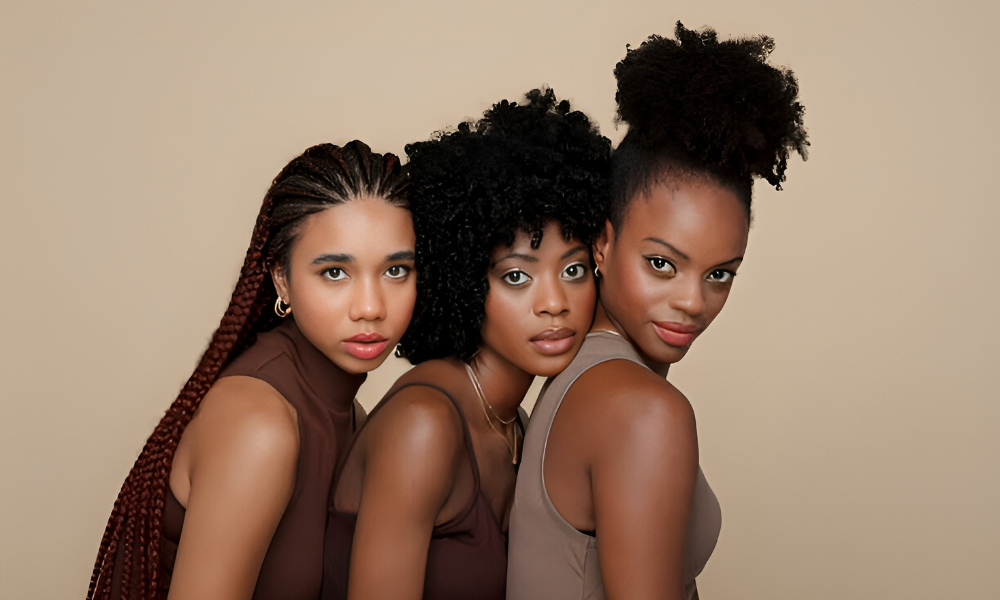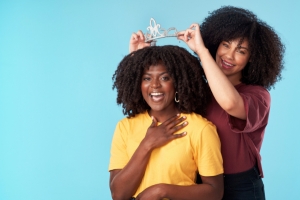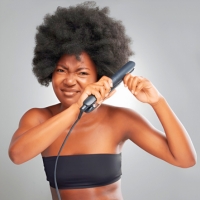
Over the years, I’ve seen and read a lot about how Eurocentric beauty standards hurt Black women—not just on the surface but by draining our energy and undermining our confidence. Social media posts, opinion pieces, and various storeys from everyday life all point to one painful truth: the dominant beauty ideals force us to expend emotional labour just to be accepted. In this post, I want to share some observations and insights on how these eurocentric beauty standards hurts Black women—even in communities that should, by every measure, be celebrating our natural beauty. My perspective stems from what I’ve seen and read, reflecting a broader cultural phenomenon rather than just a personal journey.

One recurring theme I’ve noticed across social media and discussion forums is the enormous amount of energy Black women must use simply to conform to a beauty standard that was never made for us. Whether it’s adjusting our hairstyles to meet “professional” expectations at work, the pressure is undeniable. We also feel compelled to alter our appearance to fit school or social norms. The mental and emotional toll of these expectations is significant.
Countless posts from Black professionals describe the extra time and stress involved in styling their hair to align with Eurocentric ideals—often sacrificing self-expression and comfort. Instead of channelling their energy into creative or professional pursuits, many find themselves locked in a daily battle to maintain a look that society deems acceptable. This constant self-surveillance and modification drains our energy and reinforces the message that our natural state is somehow not enough.

Although I haven’t had issues with my skin tone or body shape, I have struggled with the constant battle over my hair. I grew up in a household with Rastafarian parents who celebrated natural hair as a proud symbol of our heritage. It’s baffling to see how, even when raised to love our natural beauty, we can still feel pressured to change. External influences often force us to stray from those values.
Social media is rife with discussions and memes about the “natural hair tax”—the extra time, effort, and expense required to maintain hair in its natural state. Influential voices in our community share experiences of being told that their natural hair is “unprofessional” or “inappropriate,” even in environments where Black culture should be the norm. For example, I’ve seen heartbreaking posts about Black children in schools fighting to wear their natural hair, facing scrutiny and pressure from both peers and teachers to conform to a different standard. This isn’t just about personal preference. It clearly shows that even among our own people, we have deeply internalised Eurocentric beauty ideals.

One of the most insidious effects of these beauty standards is the internalised racism they foster. When media constantly portrays a narrow standard of beauty—featuring lighter skin, straight hair, and specific facial features—it’s hard not to start questioning one’s own worth. Online, many Black women have shared feelings of being “less than” simply because they don’t fit into this unrealistic mould.
This internalized bias isn’t only about personal self-esteem; it creates a collective energy drain that affects entire communities. For instance, in parts of Nigeria and Ghana, I’ve seen discussions where even local families and schools police natural hair, pressuring children to straighten or alter their hair to meet a standard imported from a Westernised ideal. This kind of internal policing forces us to constantly battle against the idea that our natural state isn’t enough. Instead of channeling our energy into creative, fulfilling endeavors, many of us remain trapped in a cycle of proving our beauty and worthiness—an exhausting struggle rooted in deep-seated internalised racism.
What’s striking is just how pervasive these effects are—even in spaces where you’d expect Black identity to be celebrated. Even in countries where indigenous beauty practises once reigned supreme, global media has introduced an alternative set of ideals that continue to influence local beauty standards. For example, in parts of Africa and the Caribbean, entertainment and fashion industries have recently overrepresented lighter skin and more “refined” features. This isn’t just about personal preference; it clearly shows that even among our own people, we have deeply internalised Eurocentric beauty ideals.
While it’s crucial to understand and acknowledge the energy-draining impact of Eurocentric beauty standards, it’s also important to recognise that change is possible. Many Black women are now using social media and other platforms to reclaim our narrative. They are celebrating natural hair and embracing diverse skin tones. Together, we are redefining what it means to be beautiful on our own terms.
This emerging counter-narrative empowers us, but it also starkly reminds us of how much energy we have already lost in struggling against a system that devalues Black beauty. It’s both a call to action and a lesson in self-care. The energy we spend trying to conform is exhausting. We could better use it in creative, fulfilling pursuits that honour our heritage and individuality.
Eurocentric beauty standards hurts Black women by draining precious energy—energy that could be spent nurturing our talents, passions, and communities. The daily struggle to conform, the internalized racism, and the subtle judgments we face create a relentless battle. Even in our own cultural spaces, society constantly forces us to fight for acceptance.
By educating ourselves about these issues, we can create change. Sharing our stories and supporting movements that celebrate natural Black beauty will help shift the narrative. This is how we start shifting the narrative. Every conversation, every shared experience, and every moment of self-acceptance chips away at the power of these imposed standards. It’s time to reclaim our energy and define beauty on our own, much-needed terms.
4-minute read Have you ever found yourself lying awake at night, heart heavy with worry about your teenager’s safety during interactions with the police? It’s a question that lingers for many parents and caregivers, especially when history and statistics both
4-minute read I’ve spent a lot of time thinking about beauty—what it means, who gets to define it, and whether it’s really as inclusive as we like to think. And the more I look at it, the more I realize
4-minute read Let’s be honest—the Hidden Agenda Behind Beauty Ads is everywhere. They follow us on our phones, pop up in our social feeds, and even sneak their way into our subconscious when we least expect it. One minute you’re